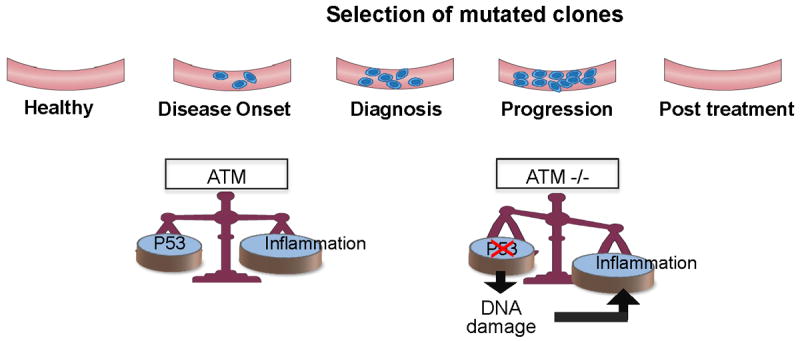Figure 3.

Chronic inflammation is induced in cells with wild-type or deleted ATM at different stages of the disease: At an early stage, wild-type ATM promotes TP53 DNA-damage repair and induction of chronic inflammation and production of inflammatory cytokines such as IL-6. When ATM is mutated, in the absence or presence of 11q deletion, less TP53 is produced and accumulating damaged DNA induces an inflammatory response. This effect is more prominent when the disease burden is high or during disease progression.
